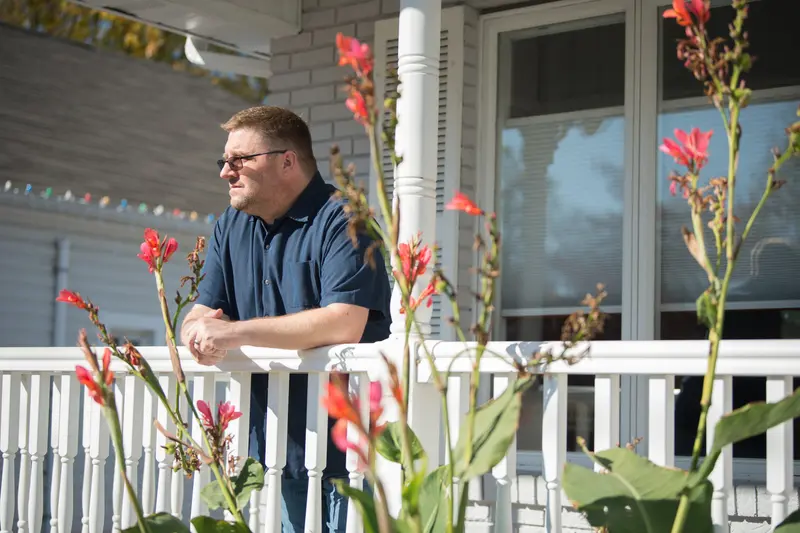Baker College Faces Federal Investigation Over “Recruitment and Marketing Practices”
ProPublica and the Detroit Free Press found that Baker College spent more on marketing than it did on financial aid. Now, the school faces an inquiry by the U.S. Department of Education.

The U.S. Department of Education has opened an investigation into Baker College, a large nonprofit school in Michigan, over its “recruitment and marketing practices,” according to a new public disclosure.
For decades, Baker’s marketing touted a low-cost education and a near 100% employment rate for graduates of its campuses and extensive online curriculum. But fewer than a quarter of students graduate, far less than the national average for private four-year colleges. Former students and staff members described frequently changing requirements and programs that delayed graduation, sometimes indefinitely.
Those details and others painted a troubling picture of Baker in a 2022 investigation published by ProPublica and the Detroit Free Press.
On Monday, news of the federal inquiry, first reported by The Chronicle of Higher Education, was welcomed by several students quoted in the ProPublica-Free Press investigation.
“I am stunned, to be honest,” said Bart Bechtel, a Baker graduate who took out more than $40,000 in student loans for an online associate degree.
Bechtel has previously described how the school encouraged his loans, even though the amount he borrowed exceeded his tuition. Financial aid officers, he said, told him he should take advantage of the full amount he was eligible for, since he might need money for Christmas presents and family expenses.
The 2022 story detailed how 70% of Baker students who took out federal loans had problems making payments two years after leaving college. An exceptionally large number of former Baker students with loans had filed claims with the federal government that they were defrauded or misled by the college. As of December 2020, according to data published by Yahoo Finance, of the 266 institutions with more than 100 “borrower defense” claims of deception, only five were long-standing nonprofits. Among those five, three were shuttered colleges, and one had recently regained accreditation 20 years after losing it. The other was Baker.
In an email to ProPublica, a spokesperson for the Department of Education said the agency does not comment on investigations, or acknowledge that they exist, “until any outcomes have been officially communicated to the institution.”
Messages sent on Monday to Baker’s vice president for marketing and communications and to President and CEO Jacqui Spicer were not returned. However, the college issued a brief statement attributed to Baker’s board chair, Denise Bannan, who, over nearly 40 years with the school, has previously served as provost, vice president for academics, president of the Owosso campus and liaison to Baker’s accreditor.
The statement said the college “received an information request” in connection with a department investigation. It said that Baker “is cooperating with the Department’s request and takes its obligations under Title IV of the Higher Education Act of 1965 seriously.”
In a Monday night email Spicer addressed to the “Baker team,” she promised the school was working to resolve the matter “as efficiently and transparently as possible.” She also warned recipients to be cautious of information from “external sources” and to “avoid contact, directly or indirectly, with the media.” The email was obtained by the Detroit Free Press.
The disclosure of an investigation was posted June 21 by the Higher Learning Commission, a private accreditation agency. The day before, Baker issued a news release describing a freeze on undergraduate tuition, a reduction of graduate tuition and some free housing opportunities in the coming academic year.
The commission’s disclosure notes that Baker remains accredited. The college is required to file a report with the accreditor no later than Aug. 18 “providing a detailed update regarding the status of the investigation.” The disclosure also says that the Department of Education’s office of federal student aid initiated the inquiry.
Despite serving many low-income students — and also having a large endowment — Baker College spent more on marketing than financial aid, ProPublica and the Free Press found. Ten years after enrolling, fewer than half of former Baker students made more than $28,000 a year.
“I think it’s a good move,” said Dan Nowaczyk about the federal government’s review of the college. A 2016 graduate from Baker’s now-closed Flint campus, he remembers fellow students who did not realize they would have to pay their loan money back.
“Based on all the stories I’ve heard since your report came out, and from your original report itself, auditing their financial aid processes and making sure it’s all being done right can help not just the students but Baker College itself too in making sure it’s there for the students first and foremost,” Nowaczyk added.
The ProPublica-Free Press investigation also found governance issues at Baker. Upon retirement, former presidents routinely served on the college’s Board of Trustees, which is supposed to provide independent oversight on the decisions of the school administration. One longtime former Baker president served as chair of the board while at the same time being paid more than a million dollars from the college for five years of part-time work.
Baker’s bylaws state that no salary should be “paid to trustees, as such, for their services,” but they do permit payment to a trustee who works for the college itself.
When asked about the source for the graduate employment rates that it promotes, Baker’s then-president cited the National Association of Colleges and Employers. However, the group said it does not evaluate individual institutions. It collects self-reported information from the colleges, often based on surveys.
Baker officials traced the school’s low graduation rate to its open enrollment policy of accepting virtually any applicant with a high school degree or equivalent, the 2022 story reported, and also said the college is not allowed to restrict student borrowers. In a statement, the college emphasized its continuing commitment to improving student outcomes and reducing student loan debt. Regarding Baker spending more on marketing than financial aid, the then-president told reporters that he believed this was necessary because the breadth of the college’s educational opportunities were not well-known.
Following the story’s publication, Baker sent a legal threat to a former faculty member who spoke to a reporter. Jacqueline Tessmer, who taught digital media at the now-closed Auburn Hills campus for 14 years, had told reporters that the college “has ruined a lot of people’s lives.” Soon after, she received a letter sent by a law firm on behalf of Baker, demanding she retract her statements, which it described as “false and defamatory.”
In the 18 months since receiving the letter, Tessmer said, she has not heard again from the college or its lawyers. The news of the federal investigation has her thinking of her former students.
“I hope Baker has to agree to forgiving at least some of the debt incurred by students who never graduated,” Tessmer said. “Or perhaps graduated but were sold degrees that pay so little they will never earn enough to pay them off.”
ProPublica is a nonprofit newsroom that investigates abuses of power. Sign up for Dispatches, a newsletter that spotlights wrongdoing around the country, to receive our stories in your inbox every week.
ProPublica is a nonprofit newsroom that investigates abuses of power. Sign up for Dispatches, a newsletter that spotlights wrongdoing around the country, to receive our stories in your inbox every week.






